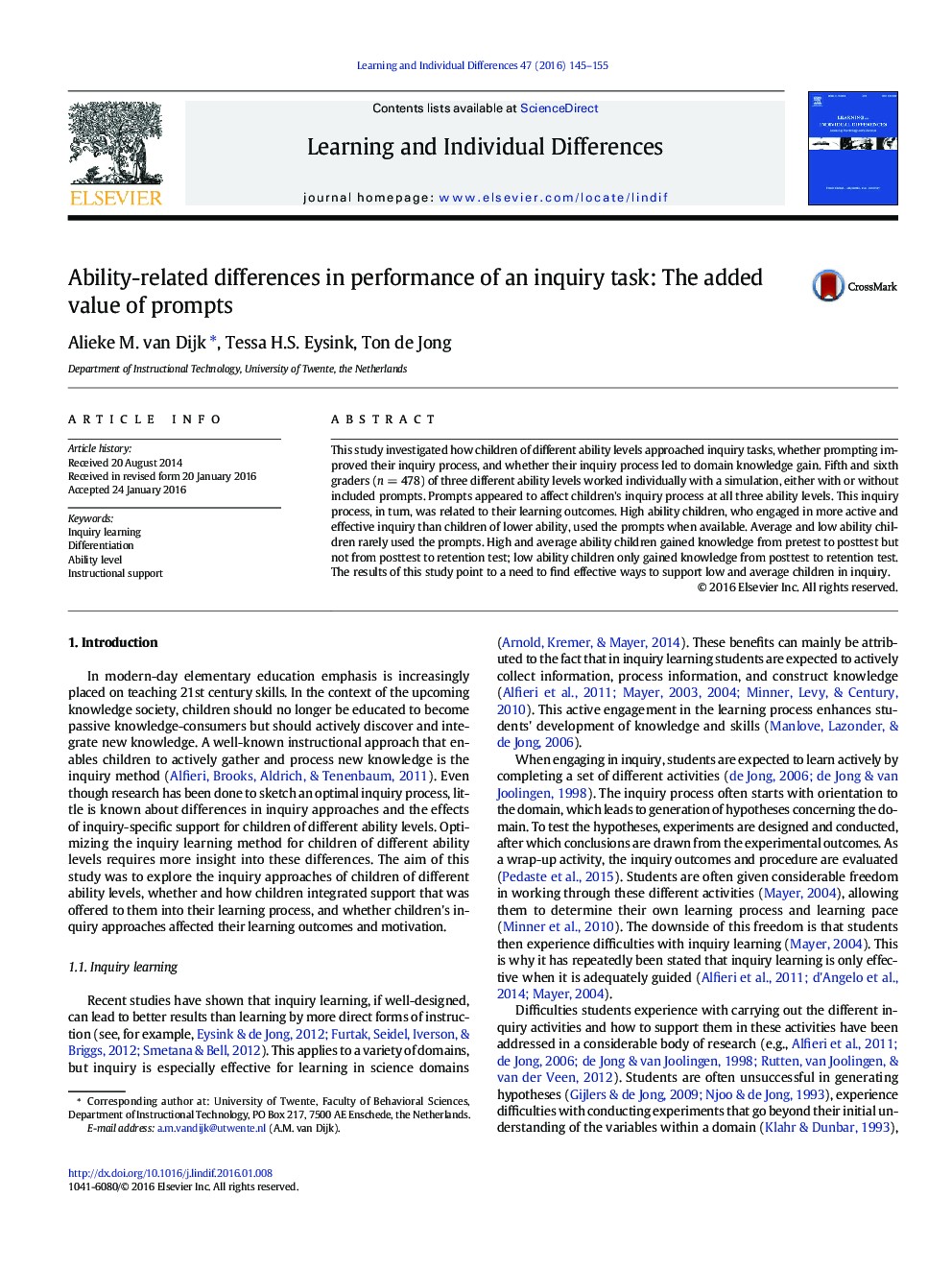| Article ID | Journal | Published Year | Pages | File Type |
|---|---|---|---|---|
| 364597 | Learning and Individual Differences | 2016 | 11 Pages |
•High ability children show more effective inquiry than lower ability children.•If provided, high ability children integrate prompts in their inquiry process.•Average and low ability children rarely use prompts.•Using prompts, children perform more informative experiments.
This study investigated how children of different ability levels approached inquiry tasks, whether prompting improved their inquiry process, and whether their inquiry process led to domain knowledge gain. Fifth and sixth graders (n = 478) of three different ability levels worked individually with a simulation, either with or without included prompts. Prompts appeared to affect children's inquiry process at all three ability levels. This inquiry process, in turn, was related to their learning outcomes. High ability children, who engaged in more active and effective inquiry than children of lower ability, used the prompts when available. Average and low ability children rarely used the prompts. High and average ability children gained knowledge from pretest to posttest but not from posttest to retention test; low ability children only gained knowledge from posttest to retention test. The results of this study point to a need to find effective ways to support low and average children in inquiry.
